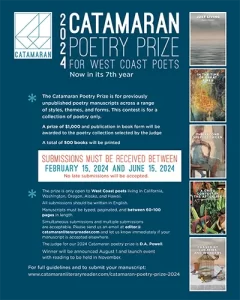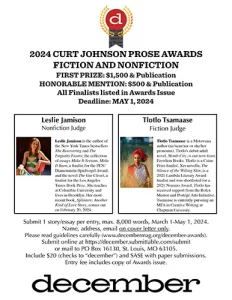South Dakota Review – Winter 2007
Volume 45 Number 4
Winter 2007
Quarterly
Kenneth Nichols
In his essay, “Old America,” editor Brian Bedard sets the tone for this issue of the South Dakota Review. He paints this region of the country as a difficult but rewarding place in which success requires a tough body and tough spirit. The work in this issue illuminates a place where people acknowledge their past while working toward a better future and remaining in touch with the land. The theme is reinforced by Suzanne Stryk’s cover art that features a feather alongside a DNA double helix.
In his essay, “Old America,” editor Brian Bedard sets the tone for this issue of the South Dakota Review. He paints this region of the country as a difficult but rewarding place in which success requires a tough body and tough spirit. The work in this issue illuminates a place where people acknowledge their past while working toward a better future and remaining in touch with the land. The theme is reinforced by Suzanne Stryk’s cover art that features a feather alongside a DNA double helix.
William Jolliff presents two poems in this issue: “Harlow Berry, Planting Corn” and “God Crazy.” These poems accomplish the difficult task of communicating a worldview using precious few words. If only we could understand “how all good things / must grow together, work and love, love and work, / one old man and thirteen hundred acres.”
In his story “Double Feature,” James Terry heaps together a multitude of compelling elements. These include the lonely long-haul trucker, the cute young waitress who dreams of something better, nostalgia for lost youth and the electric confusion of summertime lust. Much more important than the plot of the story is the way that Terry invites the reader inside the characters’ heads.
Other poems in the journal address lament for natural beauty we’ve lost and the sacrifices we accept in the name of progress. Robert Murdock’s “Apology for Seeing Something Beautiful” acknowledges this cliché but plays with it to satisfying effect. In “Milkweed,” Lowell Jaeger evokes nostalgia for the paved-over places of our childhood.
[www.usd.edu/sdreview/]




